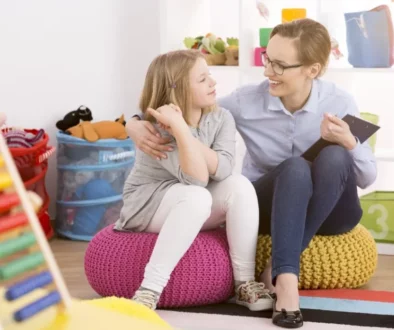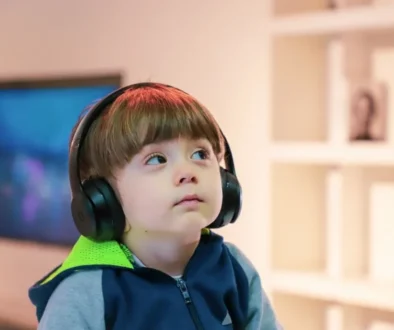Can an Early Autism Diagnosis Improve a Child’s Experience at School?
Human brains are most adaptable to the environment between birth and two or three years of age. This is why it’s said that learning a second language is easier as a child than an adult. Similarly, treating autism as early as possible can help children diagnosed with autism reach their full potential. If you suspect your child has autism, it would not only be for their benefit but also yours if you got an official autism diagnosis as early as possible.
The sooner your child has a diagnosis, the sooner you can seek out treatment. When it comes time for your child to attend school, you will see strides in their social development and communication skills. Keep reading to find out how an early autism diagnosis can improve your child’s experience at school.
Diagnosing Autism
The key to helping a child with autism live everyday life in society is detecting signs as early as possible. Signs can be present in children as young as 18 months of age. Children with siblings diagnosed with autism are in the high-risk group and should be closely monitored by parents and physicians.
Unfortunately, most children with ASD miss this window of time and are not diagnosed until they are over the age of 4 years old. This means they are missing the prime years when treatment would be the most beneficial. There is a myriad of reasons why parents are reluctant to proceed with getting an early autism diagnosis.
Some parents are hesitant because they may be afraid to know the official diagnosis and hope these signs will disappear over time. While some parents are given misinformation from trained professionals. It is far too common for pediatricians to tell concerned parents that these signs are “normal” or “common” and to wait until the child is older if the symptoms persist.
Warning signs of autism include:
- Lack of eye contact
- Not engaging in pretend play
- Rarely or not responding to their own name
- Not engaging in pretend play
- Unusual reactions to everyday things
- Not liking to be held or cuddled
- Struggles understanding their emotions
- Difficulty with change
- Struggles to relate to others
- Repeating actions over and over
- Rarely responding to their own name
Social Development
Research has shown that an early autism diagnosis and early intervention and treatment can improve a child’s overall development. The earlier a child receives treatment, support, and autism-appropriate education, the more likely they will learn essential social skills and have an easier time adjusting to society.
A child receiving treatment as early as possible will gain the ability to act better in social situations and learn how to be more independent. These are valuable tools children with or without autism need to be successful throughout childhood and well beyond, so why not get a head start? In short, an early autism diagnosis can provide a child with the potential for a better life.
Better Prepared Parents
It can be scary to have an official diagnosis. Once a parent knows, the better they can prepare and support their child diagnoses with autism. If you want to help your child reach their full potential, it is important to know their treatment starts with you. You will also be expected to be heavily involved in their treatment as well.
Becoming a better-informed parent of a child diagnosed with autism does wonders for a child’s overall development. When you are more informed, the easier it will be for you to prepare others, such as future teachers, caregivers, or even family members. ASD is a spectrum, so be sure you are your child’s advocate. Learn what makes their case of autism different and what makes him or her unique.
Some parents feel alone, which is understandable if you do not know anyone else with a child diagnosed with autism. However, there are many communities out there (in the physical world and online) for parents of children with ASD. Members in communities are more than happy to share advice and tips as well as offer support.
A Head Start on Speech Development
Communication is one of our most valuable tools as humans. When we are unable to communicate, we feel frustrated.
The last thing a child wants is to feel misunderstood and unable to voice out their needs and concerns. When children struggle to communicate verbally, they will sometimes resort to crying or even destructive behavior when they feel unheard.
If you see early signs of speech delay in your child, getting an autism diagnosis will help you get a head start on speech development. When a child gets started in speech therapy sooner rather than later, your child’s speech therapist can help address problems before they become more serious.
Autism in preschoolers who have received early treatment versus preschoolers who haven’t is sometimes apparent. Speech therapy as a part of early treatment for ASD can help your child become more successful in school, a more independent communicator, and build their self-esteem
Early Autism Diagnosis Through Telemedicine
Unlike other conditions, autism is easier to diagnose remotely since there is no need for physical tests such as blood tests. Your doctor will take a look at your child’s developmental history and records as well as ask you a series of questions about your child.
Examples of questions asked during an evaluation:
- At what age did your child turn toward whoever called his or her name?
- Does your child follow familiar directions such as “Go get a diaper”?
- How interested is your child in communicating or interacting with others?
- Does he or she play with a toy the way you expected?
- How often does your child seek out someone else to play with him or her?
They may engage your child through toys or books and note your child’s behavior and speech. This developmental screening and evaluation are what will help them make their final autism diagnosis in the state of Texas.
The Benefits of an Early Diagnosis
Preparing a child with an autism diagnosis doesn’t have to be as challenging as others make it out to be. The sooner you seek treatment for your child and have the right strategies and support in place, the sooner you will see your child thrive.
If you suspect your child may have ASD, please do not hesitate to contact us and schedule an evaluation. We’re here to help.



